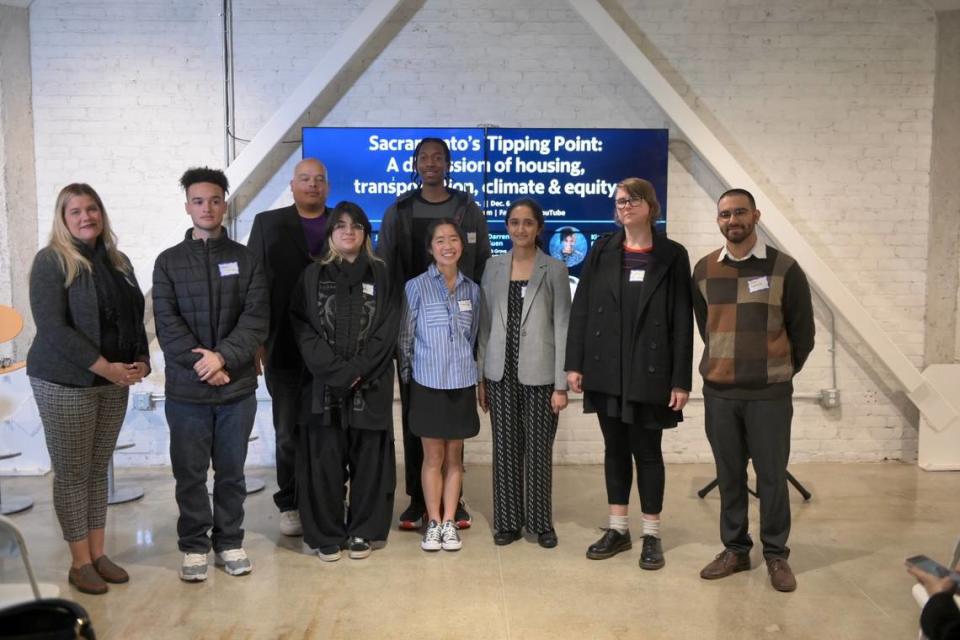Who won The Sacramento Bee’s climate grant pitch? See the winning ideas
The Sacramento Bee called on readers in early November to pitch a climate solution that they would like to enact in our region.
The application asked for individuals or groups to create a slideshow that outlined their idea and to record a short video that pitched their proposal. A group of The Bee’s 2022 Change Makers were enlisted to evaluate submissions based how well the pitch addressed climate change through an equity lens. With support from Solutions Journalism Network’s Beacon Initiative, The Bee awarded $5,000 to three different groups for projects that the judges’ felt best met the submission criteria.
“The Bee has made climate coverage a priority, so this is definitely part of that coverage strategy ... We wanted to make sure we were pointing to solutions, and not just pointing to problems,” said Colleen McCain Nelson, The Bee’s executive editor. “We’re excited with support from the Solution Journalism Network, we could engage with local organizations, engage individuals and ask for ideas about how we can address climate change.”

The Bee received a range of submissions that sought to broaden awareness of climate change and to promote actions that will allow us to live in better harmony with environment. The winning submissions are:
The Students of New Technology High School
The students of New Technology High School in south Sacramento take home one of the grants for their project on the effects of food waste. Encouraged by Joe Flores, a leader in the community and a Sacramento Bee Equity Lab change maker, the students created a school compost garden and proposed an educational campaign.
“The youth led presentation is inspiring, well put together and the goal is clear,” a judge wrote. “The strategy laid out to scale using the findings from this project to present to the board for consideration is thoughtful and empowering.”
Miranda Navarro, a junior at at the high school, said she is very proud of her school for putting together their project. She and her peers plan to pass on the project’s mission to underclassmen.
“I really like dealing with climate and working on how our school can impact the environment, even though its very small,” Navarro said.
350 Sacramento
350 Sacramento, a Sacramento-based nonprofit focused on climate justice, will receive another grant for their community forum on regenerative agriculture. Their project focuses on launching a day long community forum on regenerative agriculture. The forum plans to bring regenerative agriculture experts to educate community members and college students.
“College age kids at agricultural schools like UC Davis, they don’t actually learn about regenerative agriculture. That’s a big problem,” said Program Director Katie McCammon. “This is a way for young people to learn about regenerative agriculture and actually get educated.”
As a small organization, McCammon said winning the grant makes a difference with getting “all the help they can get.”
“I appreciate the collaborative effort and the growth potential of this project. The grant is positioned as “seed funding, and with the right partners can have a lasting impact,” one judge wrote.
Environmental Impact Club at Vista del Lago High School in Folsom
Students Shagun Juthani and Addison Luong won the final grant, where the money will be going to their native pollinate plants project. Juthani and Luong’s proposal included creating more gardening boxes around their high school. They were inspired after restoring the school’s greenhouse and wanted to further their impact by creating a native pollinators garden.
“We’d love to replace the square bushes and green lawns with a lot of native plants that not only help improve the flora and fauna of our campus, but also help support native pollinators and, hopefully, replenish the biodiversity lost in the urbanization of building our school,” Luong said.
Juthani, a senior, said she was “really excited” to win the grant. Luong, a sophomore, said with the grant money, they’re determined to expand green spaces around their campus and to other schools in their district.
“I appreciate that this is a green project that expands to multiple schools — with the potential to expand further with little additional investment, for a larger impact,” one judge wrote.
The Bee will follow up with the three recipients in April and report a story on how each project worked.

